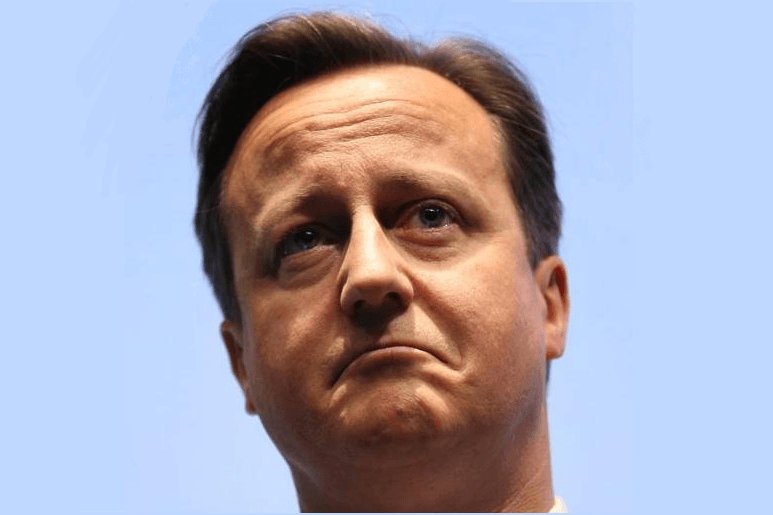The latest revelations from the Panama Papers have got us all pointing fingers and eyes at The Wicked Tax Avoiders of the East. An unsurprising list of names springs from the reports: Vladimir Putin, Lord Ashcroft…we could have guessed. One collective-eye-roll-from-the-masses later, we’ll go back to accepting that oligarchs will be oligarchs.
But, though we might hope that only maniacal, reclusive billionaires are hiring firms to save them from contributing to society more than they absolutely must, in reality it’s a little more complicated.
Both the Guardian Media Group (GMG) – the leading UK newspaper to report the scandal, and HM Revenue and Customs (HMRC) – the government agency tasked with collecting tax revenue, have also found an offshore haven or two to nest in.
The ‘estate’, AKA 600 regional offices, of HMRC (then known as the Inland Revenue) was sold to the Bermuda-based Mapeley Steps Ltd in 2001 under Blair’s Labour government. The sale of this public real estate was made under the Private Finance Initiative (PFI), a privatisation method that our current Conservative government continues to use. The amended version of PFI – ‘PF2’ – will be implemented for the UK’s upcoming infrastructure plans as outlined in George Osborne’s budget earlier this year.
Private funds buying PFI government contracts often use tax havens, a commonplace tool for increasing private wealth. At the time, the Inland Revenue chairman Sir Nicolas Montagu apologised for the ‘blunder’, after Labour MP Austin Mitchell reminded him:
This government was elected pledging to crack down on tax evasion and avoidance.
How familiar. That this ‘own goal’ was put into place by the neoliberal policies of New Labour shows that not only are these practices more widespread than just a few rich individuals, but that it also crosses party lines and their – supposedly – different ideologies.
HMRC are tasked with investigating offshore tax havens for illegal activity, and ensuring that fair and due taxes are delivered. Do they, or any other branch of the government, expect the public to have faith in their integrity and ability to seriously address tax avoidance while employing the same tools?
Then there’s also The Guardian. Data-leak reporter whizz kids at the forefront of British investigative journalism, built upon a historical liberal remit.
Long investigative-story short: they have avoided paying tax.
Finance journalist Tim Worstall has called The Guardian out on this more than once. In two articles – similarly titled, though one addresses their “insufferable hypocrisy“, and the other, their “staggering hypocrisy” – he addresses Guardian journalists’ ignorance about their own accountants’ doings.
While the newspaper have criticised companies such as Barclays for a particular avoidance of capital gains tax through the ‘SSE exemption’, the GMG used the exact same law after the sale of one of their subsidiaries.
To their credit, The Guardian have responded to claims about ‘tax hypocrisy’ and have publicly admitted to using tax havens to secure financial deals. The paper have also published a statement in the name of transparency about the legality of their tax policies, in which – reflecting The Canary‘s position – they note that avoiding tax is not automatically morally sound simply because it’s legal:
Others might think any step to avoid a tax by putting it through the Cayman Islands counts as tax avoidance, no matter how resigned the taxman is to it.
In its own defence, the final line of the statement quips:
Surely no British paper would steer clear of subjects that might embarrass its proprietor, would it?
This is a systemic and global issue that needs to be part of a wider culture change. So far, so familiar. Whose responsibility is it? Can all countries work together to outlaw the borderline-legal corruption? There are many shades, loopholes and statutes of grey here, and we will have to wait for more revelations before whether or not any significant action will take place.
For a final shade of grey, we turn back to Worstall. He’s not wrong to call the paper out for their hypocrisy, but from which platform is he calling? That would be Forbes magazine, official luvvies of the rich list.
Among whom, surely all pay as much tax as they absolutely must. And while a systematic and global cheat card exists for those who can afford one, who’s to say how much that is?
Get involved!
Read up on tax at Tax Research UK
Read the information in the Panama Papers
Support The Canary to keep watching the watchmen.
Featured image via Nick Ares and H. Michael Miley.





















